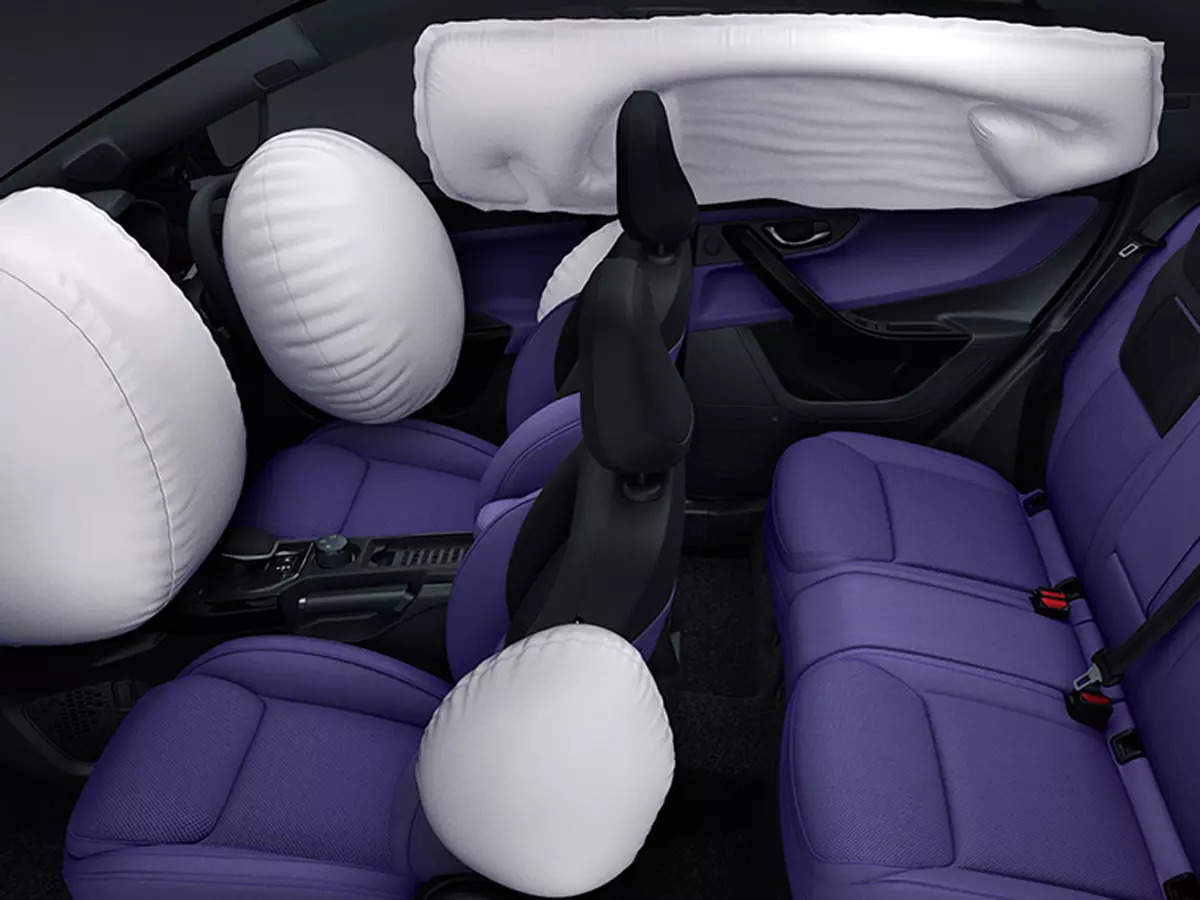Once seen only in premium and luxury cars, six airbags are now becoming more accessible to and affordable for the average car buyer in India.
The government last month clarified that six airbags were not mandatory (in India, two airbags are mandatory), leaving it to the customer to make a comparative assessment of safety while buying vehicles.
There has been increasing focus on road safety and growing demand for safer vehicles. Towards this end, effective October 1, the government rolled out Bharat New Car Assessment Programme — the country’s first crash testing standards for locally manufactured vehicles.
Globally, India ranks among the top in road accidents, despite accounting for just 1% of the world’s vehicle population.
The share of mass-market cars sold with six airbags in India rose to 46% of 1,443 variants in the January to August 2023 period, as per Jato Dynamics.6 Airbags at Entry-level
It was 37% of a total of 1,264 variants in CY 2021, according to data collated by the consultancy firm.
For instance, Hyundai, India’s second-largest carmaker, announced on Tuesday that six airbags would now become a standard feature across its vehicle portfolio. Others like Kia, Mahindra & Mahindra, Tata Motors and Toyota Motor Corp too are seeing an increased penetration of models equipped with six airbags.
“Now, the entry hatchback Grand i10 Nios, entry sedan Aura, new Verna and Exter too come with six airbags as a standard safety feature. Indian customers have evolved and safety features like airbags, ABS (anti-lock braking system), ESC (electronic stability control) are becoming a priority,” said Tarun Garg, chief operating officer at Hyundai Motor India, on the company’s latest decision.
This February, Hyundai had made six airbags mandatory for all models above its Creta SUV. The South Korean carmaker has already seen the share of six-airbag models rise from 34% in 2021 to 65% in 2023 across its product portfolio.
According to a recent study by NIQ Bases, crash-test ratings and the number of airbags were the top two features for nine of 10 customers while purchasing a car. Fuel efficiency, once the most popular feature for mass-market cars, was the third-most important driver.
Experts say airbags are a proven life-saving technology, and six airbags provide more comprehensive protection than two or four airbags. They can help to protect occupants from head and neck injuries in side impact and rollover crashes, which are two of the most common types of fatal crashes. Six airbags are especially important for children and older adults, who are more vulnerable to injuries in car crashes, said Ravi Bhatia, president, Jato Dynamics.
However, cars with six airbags are likely to cost more, said Bhatia. The two standard airbags cost Rs 14,000, and an additional four airbags can add Rs 30,000-35,000 to the cost of a car. Most carmakers are trying to factor this into their car prices. Hyundai made a price increase of 1-1.5 % for most models.
India lags major car markets in terms of the availability of vehicles with six airbags. In the US, 98% vehicles have six airbags, 89% in Germany, 65% in China and 12-13% in India, according to Jato Dynamics.
For all the latest Automobile News Click Here
For the latest news and updates, follow us on Google News.


